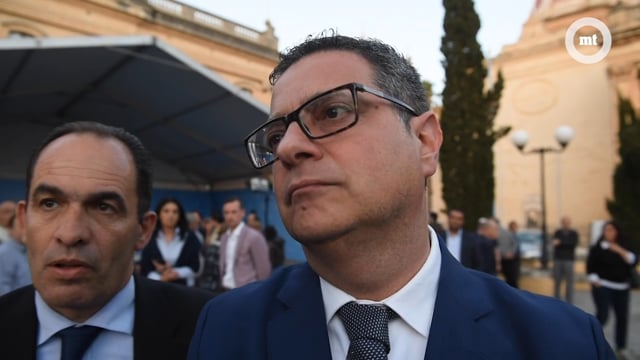[WATCH] Delia: Socialist victory in EP election will lead to European courts ‘imposing abortion’
The PN leader is insisting that abortion could become a ‘fundamental right’ imposed by European courts


Nationalist Party leader Adrian Delia is challenging claims that there is no link between the result of the European elections, and the legalisation of abortion in Malta.
Delia is insisting that if the European socialists win the forthcoming elections and implement their manifesto, the ‘European Courts’ would be able to impose abortion on Malta.
“This is one of Timmermans’s electoral pledge. He is saying that if he becomes president, he wants [abortion] to become a right,” Delia said. “A right means that if you are Maltese, you can invoke that right.”
The European Socialists’ manifesto states that the group wants “a binding EU Gender Equality Strategy, through which we will continue to lead the fight to end the pay and pensions gaps, combat sexual harassment and gender-based violence, and ensure that every individual has access to their full sexual and reproductive rights.”
The PN is now making the defence of the right to life and abortion a key plank of its MEP election campaign.
Delia compared the effect of European case-law on Maltese law with the decisions of the European Court of Human Rights – the court set up by the Council of Europe, but not the EU’s Court of Justice – on Maltese rental laws, as proof that it would be possible that the same happens on abortion.
“Maltese law for example, which has been around for years, was not enough for people who own property to evict their tenants, even though we have a right to make use of our property,” Delia said. “But you can go to Europe, request that fundamental right, and that will then be imposed on Maltese law because it will say that our laws weren’t in line with European rights.”
READ MORE: On abortion, Adrian Delia saw the panic button and pressed it – Joseph Muscat
The PN leader brushed off suggestions that the PN’s focus on abortion indicated a lack of ideas, stressing again that every vote for the socialists was “a step closer to it becoming a right across the whole of the EU.”
READ MORE: The return of the Brussels abortion scare
Which European court?
It remains unclear which European court Delia was referring to. However there have been a number of instances were cases related to Maltese property law have been referred to the European Court of Human Rights, of Strasbourg.
The ECHR has on a number of occasions found that the provisions of Maltese law breached the fundamental rights of individuals when it comes to property rights.
However, while it has repeatedly pointed out as the law created the “systemic violation of the right to property” it remained up to the Maltese parliament to pass legislation to address this.
Similarly on abortion, it is true that the ECHR recognises that this should be left up to the respective member state. In fact, the ECHR’s Guide on Article 2 – that every person has the right to life – states that, “the court, having regard to the absence of any European consensus on the scientific and legal definition of the beginning of life, held that the issue of when the right to life begins comes within the margin of appreciation which it generally considers that States should enjoy in this sphere”.
Furthermore, the ECHR is established by the European Convention on Human Rights, an instrument of the Council of Europe and ‘unrelated’ to the EU’s institutions: the Council of Europe is made up of 47 member states, unlike the EU which currently has 28 members.
The other European court whose decisions Malta is obliged to apply is the European Court of Justice, the European Union’s supreme court tasked with interpreting EU law.
Given that the EU’s primary constitutional sources are the Treaty on European Union and the Treaty on the Functioning of the European Union, any changes that could bring about an obligation to for Malta to legalise abortion would require calling a European convention, composed of national governments, national MPs, MEPs and representatives of the European Commission.
Any changes would need to go to an Intergovernmental Conference, which approves the treaty, and which is then signed by all the national leaders and ratified by each state.

.png)




















